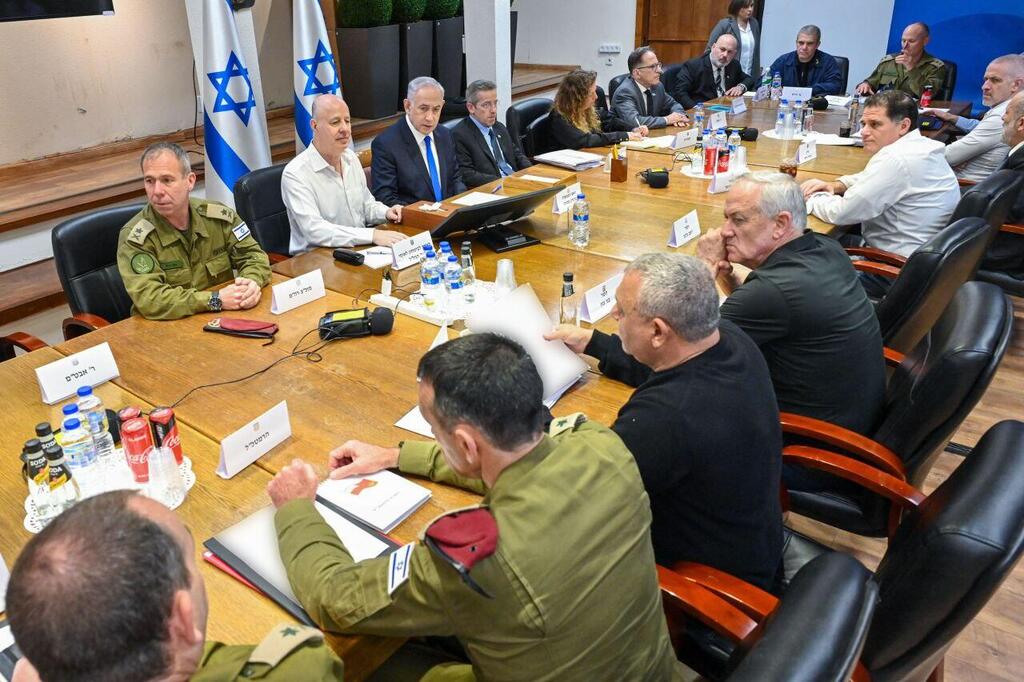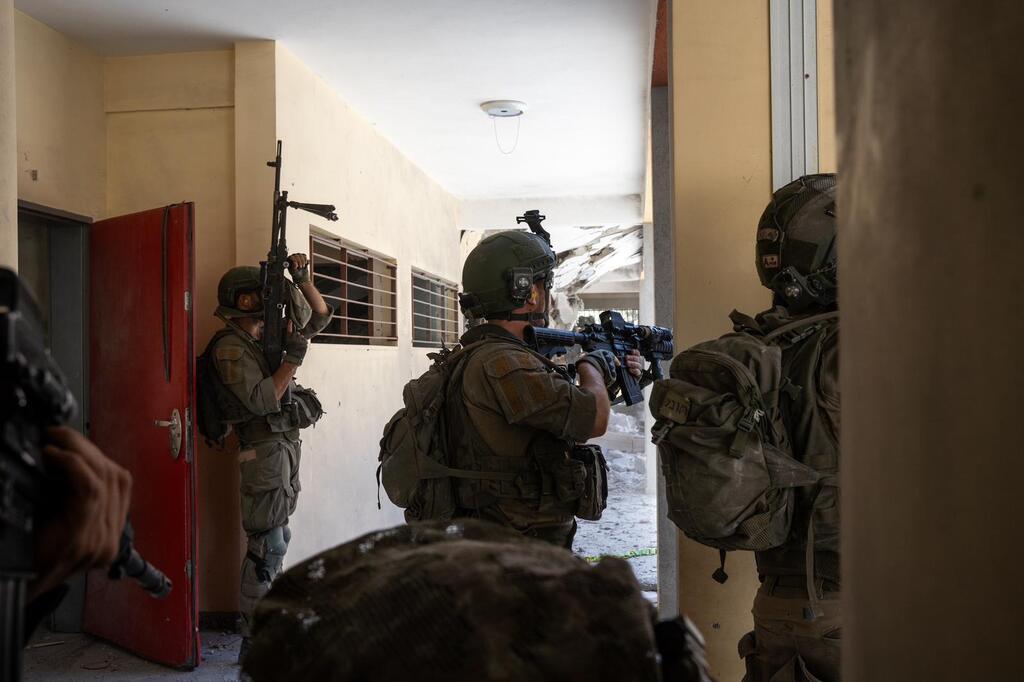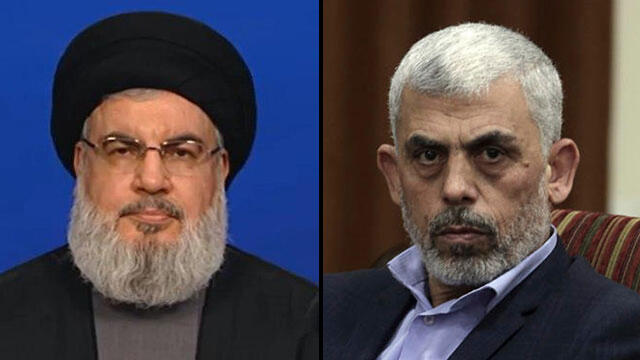Getting your Trinity Audio player ready...
Israel’s war with Hamas has now lasted for more than 250 days, a very long time for a small country. This is more than twice as long as the Battle of Britain, a fundamental turning point in world history, which lasted 114 days in 1940. From the length of the current conflict alone, it is self-evident that Israel has fought neither effectively, nor efficiently. As an unavoidable consequence of this, Israel has been thrown into a severe crisis.
Idiots and ideas
It is time to bluntly state a few hard truths about contemporary Israeli society. First and most important, a disturbing proportion of Israelis are devoid of even a cursory understanding of historical and political realities. They traffic in meaningless platitudes instead of engaging in serious thought.
Sadly, one of these people is the IDF spokesman, Daniel Hagari. On 19 June, he made the ridiculous statement that “Hamas is an idea. Those who think it can be made to disappear are wrong.” Like many thoroughly obtuse conceptions, this has wide currency. Four months before Hagari, the EU’s Josep Borrell said “Hamas is an idea and you don’t kill an idea.”
If Messrs Borrell and Hagari had some awareness of history, they would be easily able to determine that the story of mankind is to a large degree, the story of destroyed ideas. A prominent case is Nazism. On 14 June 1940, the Wehrmacht’s tanks drove past the Arc de Triomphe in Paris, and Nazism appeared to be on the verge of world domination.
Some, particularly a certain Mr. Churchill, took a different view. Less than five years later, on 7 May 1945, Germany surrendered unconditionally to the Grand Alliance at Reims, a French city not far from Paris. Nazism was finished, both as a form of government and as an idea.
A rather less famous idea is Mahdism, a Sudanese Muslim extremist movement founded by Muhammad Ahmad al-Mahdi. This movement conquered Khartoum in 1885, and killed British General Charles Gordon. Thirteen years later, when the British Empire finally found it necessary to deal with the Mahdists, the forces of General Lord Kitchener duly obliterated the Mahdist army at the battle of Omdurman.
The Mahdi’s successor, the Khalifa, was run down and killed in 1899 by the forces of Colonel Sir Reginald Wingate. Now, more than a century later, Sudan is again convulsed by vicious war, but Mahdism died with the Khalifa, and has never lived again.
Ideas, like the people who give birth to them, are mortal. The problem is not the indestructibility of ideas, but rather whether those who would wish to destroy them are strong enough to do so. Therefore, the issue at hand in the Israel-Hamas war is whether Israel is strong enough to destroy the idea of Hamas.
Impossible to win decisively without fighting decisively
The second hard truth, and the reason that the outcome of the struggle against Hamas is in doubt is precisely that Israel is weak. As Eliyahu Revivo of the Likud stated with commendable clarity in recent days, “What is going on right now is not war. It may be fighting or an operation.” The truth of this observation is underlined by the Israeli Air Force’s announcement that a Hezbollah drone over Haifa was not shot down in order to avoid panic. Avoiding panic is an appropriate goal for a public health authority, not a military at war.
The IDF is not currently at war, neither with Hamas nor with Hezbollah. The Hamas health ministry, whose primary task is to exaggerate the number of Palestinian fatalities in order to delegitimize Israel, counted only 25 deaths in Gaza on 18 June. In substance, this means there is so little fighting in Gaza that even Hamas cannot invent anything of note to report. Meanwhile, the army’s casualties rise, slowly but continuously. 662 soldiers have already been killed in the war, and 582 more severely wounded. These losses are the natural consequence of an endlessly extended campaign, which is not being carried forward decisively.
5 View gallery


Netanyahu dismantled the War Cabinet after Gantz quit from the government
(Photo: Kobi Gideon/ GPO)
While politicians necessarily carry the greatest responsibility for military failures in a democracy, the everymen among Israel’s generals cannot be exempted from their share of the blame. The Chief of Staff, Lieutenant General Herzi Halevi, is one of them. His statement that the IDF “possess powerful capabilities that the enemy knows only a little about” is worthy only of derision in the present circumstances. It might be factually correct, but it resembles a little too closely both the common Russian joke that “we have such great tools, but we won’t show them to you,” and the widely ridiculed claims by various Russian defense enterprises that their products have “no equivalent in the world.” The right place to demonstrate military capabilities is the battlefield, not the television screen.
The key to defeating Hamas lies not in dismantling its formal structure of battalions, which is what the army is currently doing in Rafah. Rather, victory can only be obtained by obliterating Hamas everywhere where it attempts to hide, with overwhelming force. Instead of proceeding to do this, it appears the military is not even sure whether it will maintain control of the Philadelphi Corridor on the Egypt-Gaza border, let alone what it will do next.
It could be that I am an extraordinary strategic thinker, since on the third day of the war I proposed seizing the Corridor and blockading the rest of Gaza until Hamas and Islamic Jihad surrendered. It is more plausible that I simply understand the very basics of military operations, something that appears to be beyond the grasp of the IDF’s senior commanders.
It does not even matter whether the claim by former war cabinet member Gadi Eisenkot that “we wanted to invade Rafah in February, and Netanyahu dragged out the decision until May” is true. Rafah should have been captured in October, in November at the very latest. The fact that much of Rafah is still not under Israeli control nine months into the war, and might not be for some unknown time to come, is a bigger scandal than the failure to deal with the Hamas attack on 7 October.
The army needs to learn anew how to fight
The third hard truth about modern Israel is that the basic tactical competence of the IDF is questionable. During the initial Hamas attack, 66 soldiers were killed when the IDF base at Nahal Oz was overrun. This constitutes a tenth of the military’s total losses so far, on a base that immediately abuts Gaza and should therefore have been better prepared for defense than most others. The Gaza Division, the army formation directly responsible for border defense, should have spent less time in theoretical discussions about the plans of Hamas, which it allegedly had in its possession, and more time making sure its own bases were practically ready to defend at least themselves, if not their surroundings.
During the fighting in Gaza, there have been several demonstrations of the IDF’s fragile skills. Of course, war is inherently chaotic, dangerous and unpredictable. Otherwise, it would not be war. Yet, when 14 reservists are killed because they stayed in a building prepared for demolition which they should have departed, it is not the ubiquitous friction and confusion of war that is the cause. Similarly, when a total of 23 soldiers are killed in just three Namer armored personnel carriers, all of which were transporting engineering explosives, it is appropriate to ask why so many soldiers need to be present in each vehicle along with the explosive cargo.
All of these are tactical episodes, and in each individual case, there may be at least a somewhat credible justification for the bitter losses. Yet, as a body, they present a picture of a military that is not well organized, not well trained, and not properly prepared for war. The IDF needs to re-learn how to fight, and urgently. None of Israel’s enemies will wait for the army to regain its competence and composure.
The only way out is a decisive victory
Israel can only end the current war if it wins a decisive victory. It must either finish off Hamas, by systematically, and rapidly, combing through the rest of Gaza; or put its foot on Hamas’ throat by completely controlling the Philadelphi Corridor, while conducting a massive offensive against Hezbollah. If this is not done, and both Hamas and Hezbollah remain standing, the war will not end. Hamas will not give up the hostages, and Hezbollah will not stop shooting at Israeli territory. Neither would have any reason to do so.
The entire basis of Israel’s existence among peoples and nations who would rather see it dead is the idea that fighting Israel is not simply dangerous, but fatal. This idea, like any other, is not immortal. If it dies, if it is demonstrated that Israel cannot annihilate any of its enemies, then the war will continue, and continue to worsen. Hence, it is time for Israel to dramatically increase the scale, intensity and effectiveness of its military operations.
- Dan Zamansky is a British-Israeli independent historian and author of The New World Crisis, a Substack analyzing the problems of today






